#The author's interpretation is the only one that's technically correct but that doesn't make yours incorrect
Explore tagged Tumblr posts
Text

Sleepless in New York at 6am, the neighborhood breakfast attempts to express a coherent thought about an incoherent nag of his past ten years
#Toast Talks#Writer Stuff#Death of the Author#I'm too sleep deprived to be certain but right now this feels like it makes sense#This is the sort of thing I'm talking about to when I say “It's okay to be wrong” about random shit because in some instances it is#Because being right literally doesn't matter all of the time. Or even a lot of the time#Meaning derived from fiction is a perfect example of that#Right and wrong interpretations technically exist just as the answer to the question “is color real” technically has a definitive answer#But the point is that it doesn't actually matter one way or another#So to assert validity on either side is a losing game because you're both equally right and equally wrong#The author's interpretation is the only one that's technically correct but that doesn't make yours incorrect#Because it's not the point and you're missing the forest for the trees overthinking the situation and focusing solely on irrelevant nonsens#Just like a philosopher#The author isn't dead they just don't care and didn't ask what your interpretation is#All they really want to know is how it changed or moved you#Anything more is self-aggrandizing bullshit at best - regardless who is arguing the validity of which
2 notes
·
View notes
Text
Alright - first of all, I will not be ashamed for stating a personal opinion and posting a harmless analysis about two fanon ships I enjoy. I tagged not only with the aforementioned couples but also with anti tags so it wouldn't distupt people who enjoy the canonical ships.
Secondly, Avatar the Last Airbender is visual media. It's a means to tell a fictional story and since fiction isn't reality, people can choose to intrepret it as they want (as well as create headcanons, analysis posts and different pairings). It's also illogical to force people to like endgame ships or conclusions - and no, you don't have to write your own series, get a degree in literature or be a well-known producer/author to critic ATLA.
But since you want to get technical with me, let's analyze what you just said.
"They didn't want Katara with Zuko and that's completely their right." Correct. Bryke have the right to not ship Zutara. But we, as the audience and consumers of ATLA, also have the right to enjoy Zutara as a couple, write about them and consume media centered around them, even if they aren't headcanon. Like I stated before, you can't force your preferences on other peopl; everyone has a different interpretation to a certain piece of media and it doesn't make one superior over the other.
"Aang released Katara" Excuse me, please pin point me the exact episode and timestamp where Aang "released" Katara. By release I assume you mean letting go of his obsession over her. And that never happened. You can argue at the end of Season Two he almost did, but in Season Three his feelings for Katara become even more possessive, obsessive and down-right toxic - to the point that he non-consensually kisses her and drives her away from him. He never released Katara and him earning the Avatar State via the rock was a major plothole.
"Katara looked for him." WHEN? When did she ever reciprocate his feelings? Besides the occasional blush or the few and in-between moments where we see Katara jealous... she basically never initiates anything romantic with Aang UNTIL the finale where the kiss and hug was unearned and out of place. In Season 3 - Aang initiated 2 (non-consenual) kisses, they bickered more than ever before (most of which were left unresolved) and Katara expressed her confusion on their relationship. I simply do not see where Katara reciprocated Aang's emotions.
"Something she never wanted with Zuko"
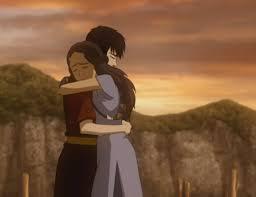
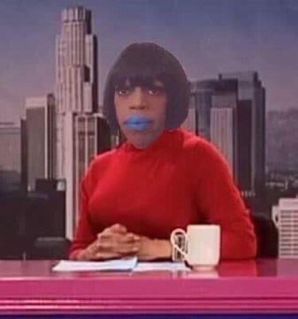
Please, if you don't enjoy Zutara or Taang or any other non-canon couple... just stick to consuming your preferred content and let people enjoy what they like.
It's common knowledge that Zuko and Aang, throughout the duration of ATLA, are a mirror of one another; a reflection of each other - not necessarily opposites but parallels.
So whilst I was analyzing the finale of the show, I noticed a really interesting parallel between our two protagonists:
Zuko was close to dying in his final confrontation with Azula and what pulled him back up, what saved him from dying was water. More necessarily Katara's healing abilities - but nonetheless, his opposing element saved his life.
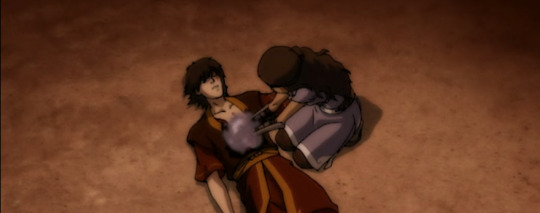
On the other hand, Aang throughout his harrowing fight against Ozai utilizes Earthbending time and time again to save himself, techniques that we've come to associate with Toph (rock armor and seismic sense). And to access the Avatar State, that had since been blocked, Earth had been the ultimate catalyst to unlocking his Seventh Chakra.
And if we take into consideration what Guru Pathik told Aang - to unlock the Seventh Chakra he would have to let go of Katara. In a sense, this could have been a visual representation of how Aang lets go of his love for Katara, and how Toph (Earth) could take up that role.
Earth, his opposing Element, saves his life.
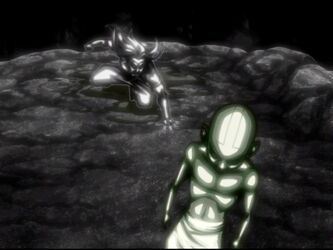
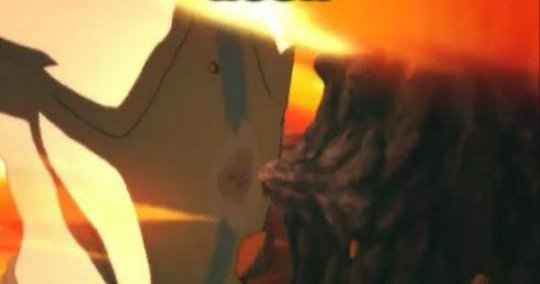
It's also interesting that our protagonists' conclusions and destinies are integrally tied to the aforementioned girls. Destiny and Fate are two major themes in ATLA, alonside the moral lesson shared to us by Uncle Iroh about the unity of the four elements and how each element can learn and grow from the other.
Zuko's destiny to bring honor to Fire Nation whilst also challenging his conflicting natures (Sozin vs. Roku; Ozai/Azula vs. Iroh) would have never come into fruition had it not been for Katara. Katara was the first person (other than his Uncle) to show him genuine compassion and humanity, she was the first person to glimpse into his true, kind and gentle nature. Additionally, had she not fought alongside Zuko to defeat Azula and save his life, he would have never been able to step up to the Throne and fulfill his destiny. Thus Katara is linked and bound to Zuko's destiny.
Aang's destiny was to restore peace to the world and end The One Hundred Year War. The Aang we meet during Book One - is timid and soft, a strong bender and with limitless potential, but he lacked the confidence, the back-bone, the grounding to step-up to his duties as the Avatar and defeat Ozai. Katara coddled him and never challenged him to look beyond himself. It's only after meeting Toph does Aang begin to confront his opponents with a different viewpoint, he gains a certain matureness in himself and suddenly we see him step up into his role and responsibilities. Toph's Earthbending not only saves him from death but it also gave him the strength to face his destiny. Thus, Toph is linked and bound to Aang's destiny.
It would have tied a lot of unexplored themes as well as provide a more satisfying conclusion (Aang entering the Avatar State because he followed through with Guru Pathik's lessons instead of pointy rock triggers it) and it would have been cohesive with the narrative thematic of ATLA.
I'm still astonished at how badly Bryke fumbled the bag with their romantic sub-plots. 🗿
1K notes
·
View notes
Note
I just saw someone asked about making a character blind in their novel and you responded about ways to avoid it being portrayed poorly. I wanted to ask, could it also help if part of the arc is the character accepting becoming blind?
Like, even if it happens in some kind of accident, or like them becoming blinded as a sacrifice for the team, would it be a bad portrayal for part of the character's story to be realizing it's not the end of the world, that being disabled doesn't make them completely useless, etc?
Or is that sort of arc also ableist?
[Note: I used the words non-disabled and abled interchangeably here. Both refer to people with no disabilities. After a conversation with some of my followers, I decided to make an effort to be clearer about who I referred to when I used words like able-bodied, because able-bodied may, for some people, refer to people without physical disabilities or without any disabilities at all. There are times when the distinction matters, even when people said they can usually tell based on context whether or not able-bodied is meant to include them.]
Writing About A Character Accepting Being Blind After Going Blind - When You Aren’t Blind Yourself
An arc about a character accepting becoming blind doesn’t feel good to me and I’ll try to explain why.
I’d rather read a story about a character who happens to be blind, in whatever way that happened, than read a story where a writer who isn’t blind tries to write about a blind character accepting being blind. I just finished a similar book and it did not go well. There are some things that research cannot teach you. There are some stories that aren’t yours to tell.
I don’t want to read about a non-blind author, especially a non-disabled author, writing negative things about my disability.
A character starting out feeling overly negative toward their blindness already feels bad to me. Why? Because the author has to write negative, sometimes completely wrong things about being blind. When I read stories like this, I am bombarded with stereotypes or myths which are rarely corrected by the narrator, who is usually traumatized and somewhat isolated as they heal. Many of the things they think or say are not checked or revisited. Mean things other characters say or think about them are often internalized by the narrator. Things that, in real life, are said to blind and otherwise disabled people as truths. As tough-love. As part of the supposed -Real World-. As bullying. As ignorant, innocent questions. As rude comments.
All of these things are not even coming from a personal place. The author writing these things- while they probably don’t agree with them, of course- is still not blind at the end of the day.
Readers who aren’t blind may not understand the nuance of why some of the things they read were ableist if it isn’t called out in the narrative in some way, which can sometimes happen when the narrator says something negative about their new disability. This isn’t to say readers shouldn’t do their own research or examine the story more closely. This isn’t to say the author is at fault for the interpretations of readers who refuse to think beyond what is laid out for them. When I say this, I am being realistic. Not all readers are going to be proactive. Not all readers are going to approach a book about a person going blind from a good place.
Most of the time, this is just something the author needs to accept. It is impossible to anticipate the strange interpretations of every reader. However, this narrative can be dangerous to a reader who has never met a blind person. Keep in mind, most people aren’t doing what you all are doing. They just read what is given to them. And if what is given to them is a helpless or self-loathing blind person, they might believe in that image. That book may be the only expirience they have with a blind person and they may not read any other books with blind characters.
Another thing I thought of was that non-blind authors sometimes don’t understand how hobbies and skills translate to blind people. For example, in a story I read once, a character who was going blind practiced playing piano and typing on a keyboard blindfolded so they could learn how to do without sight. However, blind people can already play instruments even if they were born blind. Blind people can also easily type on regular keyboards and, technically, correct keyboard technique means typing without needing to look at the keyboard.
Authors who don’t understand what it is like to go blind often don’t get the nuances of what that person is losing and not losing. And it often shows. They also don’t often include the aspects of blindness that are actually challenging. Why focus your worry on typing on a keyboard when you can learn how to use assistive devices in the kitchen or learn to cope with anxiety you anticipate will get worse after losing vision? Why not try to find accessible copies of books you have or scan or Braille sentimental letters? Why not organize your closet so you can find things more easily?
Obviously this is related to characters who know they’re going blind, though.
It favors non-disabled readers, which is ableist.
Another reason this type of story bothers me is because it is so common. Or at least people expect it. This type of story is one abled / non-disabled people can swallow and feel inspired by. Showing the blind person accepting their blindness also favors non-disabled readers in ways I may not be able to articulate well.
Accepting disability is an arc non-disabled people are comfortable with. It is a feel-good type of story that usually doesn’t challenge people too much, other than to remind them not to bully people. Already, this story is not even for disabled people, or in this case, blind people. It exists to introduce people who aren’t blind to the idea of becoming blind, to blind technology, to inspirational ideas about how blind people actually can do things. Stories like this guide abled people along and prioritize their ideas about blindness. Because the narrator is almost always previously abled, the story is about adjusting to blindness in a way that caters to non-disabled people.
How does a story with this angle benefit blind readers? Even if a blind person has also recently gone blind and wants to see a character who on that journey with them, what can a writer who isn’t blind say that blind writer couldn’t say? Or say better? Or say with more power? With more nuancel? With more personal experience?
And it may seem like saying this arc is ableist is too much. Keep in mind, ableism isn’t just about being rude to or excluding disabled people. Ableism favors those who are able-bodied or neurotypical over those who are not. It favors those who are not disabled over those who are. This story is just another way of doing that. Often, people are ableist through what they consider kindnes. Authors are not exempt from that.
Disabled authors should tell their own stories
This is where I will get some pushback. (I already received some here if you think it will be helpful to know what this is like.)
There are a few parts to this.
First, I want everyone to know I am not telling you what not to write or that this type of story, at least with elements of this narrative, can never be done well. However, the more care you take when writing it and the more you know about why it can be ableist, the better you will be able to write it. I’m still not sure I would want to read a book that is dedicated to this topic of accepting blindness, but who knows?
I also might feel more open to this narrative from a writer who experienced becoming disabled in some other way and was open about it. While they would still need to research blindness, some of the issues I named here could be avoided through having prior personal experience that non-disabled people simply don’t have.
If, however, you find yourself upset or feeling excluded by this post, consider what I wrote again. Consider why you think you are the best person to tell such a story with this particular arc.
I am also not saying that non-disabled writers could never write this topic well. I just question, again, what they can add to the topic of accepting blindness that blind people can’t already add. This is also assuming they were able to avoid some of the issues I listed above that might come up. Which would be difficult on top of doing all the other research they need to do in order to write a book. Why make it harder for themselves?
Now that I’m done with the disclaimers, accepting blindness should be something mostly left up to blind writers. This narrative is so closely tied to the trauma-based / incident-based blindness that it can be hard to separate them, but I feel like the readers of the blog have thought hard to suggest ways to improve or subvert that trope and the problems that go with it. Maybe they can do the same here. Maybe not.
Anyway, the reason I think it should be left to blind writers is because of the personal experience I mentioned previously. Acceptance will come from a more authentic place. Anything that comes before the acceptance will also come from an authentic place and blind writers will know how to deal these issues a little better.
Blind writers will know how to write this topic well. They can center blind readers in a way that many arcs like this don’t.
As a side note, blind writers also need more recognition and attention. This arc is specifically about or mostly about accepting blindness, which blind writers are intimately familiar with. Their stories should be prioritized in this area, at the very least.
If a non-disabled writer decided to do this topic, I think it would help to read and public ally promote books and other works by blind people.
Thank you for asking this question.
This was a really great question and I want to thank the anon for asking. I really appreciate the chance to discuss this topic. If anyone wants to expand on this question or figure out ways to subvert this arc, feel free to ask. Also, remember that I am not authority on stories about blind people, but I feel this opinion in shared by many of us and it should be known so writers can be aware.
Suggestions for alternatives.
1. Include only brief instances of acceptance and / or make it only related to blindness instead of accepting blindness as a character arc.
It will depend on how you do it, but brief, less direct instances of acceptance could be done well. One thing I’m thinking of is Toph challenging her father in The Blind Bandit. This could be seen as a form of self-acceptance for Toph, one which is related to her blindness without being the entirety of her need to accept part of herself, which gives her the courage to disrupt the view her parents have of her. Toph doesn’t struggle with being blind. She struggles with something related to being blind, which her parents being over-protective, limiting her freedom and expression, and putting her a gender role box.
The rest of Toph’s story wasn’t completely about being blind either. The writers, who weren’t blind as far as I can gather, handled this part well, and so I wanted to include it as an example.
Obviously, this can also be done badly, but that’s what beta readers are for. I personally would prefer the acceptance arc only be tangentially related to blindness, especially when combined with the trope about going blind through trauma / incidents / accidents.
2. Start in a different place.
You could start the story or character arc in a different place, rather than starting directly after going blind. This could be years later. After they already adjusted to the bigger parts of being blind. This saves you the need to figure out how to get around it.
Some parts of this ask might help.
3. Focus mostly on the practical stuff rather than the emotional side.
Focus on things like cane skills, adjusting to using screen-readers or needing to increase font sizes to read. Focus on learning to cook. Make the arc less about emotional stuff and more achieving goals. While I can understand how this might bother some blind people, I think it can work if blind readers are consulted, especially readers who went blind later in life. I wanted to include this as an option just in case people are determined to include going blind in the story. I think, if the author is careful, it could go well. A few narrative justifications for not writing the typical acceptance arc include:
-the character was already blind in some way first
-the character has a blind sibling, parent, or friend they grew up with
-the character got counseling or the story mentions they are getting counseling
Alternatively, you could also focus emotional difficulties on the traumatic incident, if there is one, and not the resulting blindness.
4. Write different stories - expand what stories about blind characters look like.
Writers have so many opportunities! I don’t see why they would feel the need to write a story primarily about going blind and learning you aren’t useless now after all, when they could be writing about a blind mermaid challenging the Mer Queen and falling in love with her instead. When they could be writing about blind space pirates creating new technology for other blind people. When they could be writing about a blind witch reclaiming their sexuality and also learning to dance to make their coven less worried about their social life after going blind.
See this post for more ideas about expanding the typical stories.
If you are creative enough, none of my claims that certain topics being best left to blind writers should stop you. If you feel limited, you might be trapped in the idea that blind people only have one narrative: trauma, sadness, helplessness, and just maybe, acceptance. If you don’t feel limited, you are in a good place.
Blind readers want other types of stories, too.
I hope this helps some of my followers. Thanks for the interesting question, anon. If anyone has any questions or would like me to clarify something, feel free to ask. I wrote this at night when I was tired. I have missed some things.
-BlindBeta
P.S. The ideas I pitched at the end are free to use if you feel inspired by any of them.
#writing blind characters#blind characters#blind people#ask#anon#acceptance narrative#trauma narrative
202 notes
·
View notes
Text
10 jobs that make money while traveling
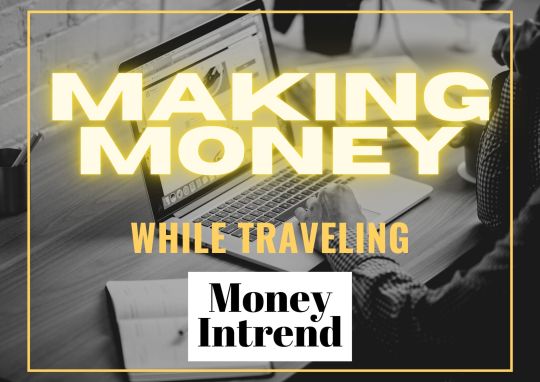
The ambition of any traveler is to find a profession that permits them to travel for as long as possible. Some may be obvious, but many are certainly new to you.
Jobs in travel and tourism are not exhaustive, but they are an excellent start. Click on the job title for further info:
1. Author/Photographer

This may or may not imply travel writer. If you were a banker, why not start writing for financial magazines and journals? You don't have to write about travel to achieve this goal.
The Matador Creators Community is a fantastic place to network with peers and editors, as well as locate opportunities for travel journalists.
2 . Travel Agency
Because travel agents act as a liaison between passengers and hotels, airlines, and tourism agencies, they must be well-versed in the products they promote. Most travel companies prefer training from a vocational or technical school, a community college, or a university.
3. Tour Guide

Someone who has realized that “home” isn't always where they were born will like this profession. What better way to earn a living than by sharing your passion with others?
Wannabe tour guides can apply for job with a local tour business. While fluency in the native language is often required, knowing English might be useful since many of your clients will be. Freelance guides are another possibility, especially if you have a specialist area like local food or outdoor activities.
4. Flight attendants

Cabin crew salaries vary widely depending on the airline and expertise, although they often start above minimum pay. You'll have fewer options as a beginner in terms of schedule, flying hours, and locations.
The good news is that if you're above 21, not too short or tall, and have no criminal record, you're generally fine to go. Some airlines desire but are not obliged to have a degree.
5. Pilot

Less travel means more training. For example, the BLS reports that 34% of pilots are employed “dusting crops, spreading seed for reforestation, testing airplanes, flying passengers and cargo to areas not served by regular airlines, directing firefighting efforts, tracking criminals and monitoring traffic.”
Most airlines prefer college graduates, and obtaining a license requires at least 250 hours of flight time. Physically, the candidate must have great eyesight (with or without corrective glasses), excellent hearing, and no physical disabilities that may hinder performance.
6. Import/export
This one may be tricky, as there's a thin line between legal and criminal in the industry. When I lived in Brazil, airport security was quite strict about outsiders bringing in gadgets, especially Apple devices, which are extremely costly in the nation and may be sold to locals for a profit. Buying something in one nation and selling it to a friend in another for a profit isn't precisely how it works.
Become an agent if you want a legitimate job. Most domestic producers want overseas distribution; agencies generally take 10%. This is a travel job for someone with marketing expertise or desire.
7. Host/hostess:
Honestly, it isn't always a euphemism. It doesn't have to be sex or a certain sort of "massage." You work at a bar and woo the patrons. You get them to buy beverages. And you do it. Maybe you join them. And you make a tidy sum.
The drawbacks are clear.
8. Interpreter

An interpreter works with spoken languages, whereas a translator works with written languages. Your company may demand a bachelor's degree or higher, and it helps if it is in languages. You can also freelance. The most significant requirement is fluency in two languages.
Start looking for translation and interpreting jobs with government entities. Other choices include non-profits, hospitals, and events with foreign competitors or attendees.
9. Airline reserve agent
This job pays minimum salary yet allows for travel. You'll help with tickets and passenger responsibilities include upgrading, addressing complaints, moving bags, and paperwork.
Requirements: age 18, high school graduation or GED, driver's license, and (usually) excellent typing abilities.
10. Poker player

My old ESL co-teacher just moved to Thailand. I saw his beach house on Facebook and thought, “Wow, he must have gotten a wonderful teaching gig.”
He quit the ESL rat race to play online poker and is winning. Obviously, this is a freelance work; the only criterion is that you win 50% of the time. It's possible to earn a lot of money and go anyplace you want, but it'll be difficult to put on a resume if you ever find a "real" job or Try this "Making money with Apps - Earn from everywhere"
0 notes
Note
I've contemplated this for a long time and this is the best sense I can make of it:
Transgendered people will exist regardless of what naysayers say or think. It's a neurological condition. The brain just is not aligned with the sex of the body. This is the source of the distress and discord. Every bit as real as a congenital nerve deformity that causes excruciating distraction and pain.
Everything beyond this point of empirical biological facts and truth is just different ways to pathologize and politicize being transgendered, it just depends what your damage is.
We have the tried and true side that more conservatives tend to fall on, which is that, "men and women have two different roles, under god, and nature, which is organized and designed, and deviating from that is an affront to nature and either is wrong and should be punished or is wrong and should be ignored until it behaves."
This is the most common variety of belligerent transbigotry, and often comes with tangentially affiliated hand-me-down bigotries. Like, "Adam and Eve, not Adam and Steve." Etc.
But then we have the less publicized form of transphobia, and I chalk it up to transphobia but it's technically something else. We'll mark it under this category for now. It's close enough.
This sort are philosophical and ideological, as well, only their system of morals doesn't come from the idea of a moral deity or religious tradition to interpret the universe. These hubristic blowhards trace their origins to fringe enlightenment figures that argued everything was subjective and nothing was empirically true, everything was constructs and made up and we should all just do drugs and fuck each other regardless of the consequences of that.
After doing so many drugs they couldn't feel feelings anymore, they went on to claim with all the authority you could smoke from a pipe that man and woman were not biological sexes, but classes, and no political group was validly rooted in its biological origins. That included race and ethnicity as well as gender. They argued that not only are transgendered people valid, under this pretense, but that the very idea of cis as normal and the standard was wrong and needed, "correcting." This idea that gender was somehow tied to biological sex... for anyone. Perish the thought. So these foggy eggs decided for all of us that animal instincts didn't exist, just loose "social programming" influenced by the loudest voices shouting in a room with the greatest amount of perceived authority. Because that's how they think information moves- from on high to the little people that don't think much. Also that nothing is true or false by empiricism, only by human validation and authority from institutions of power. Thus, they argue, male and female don't exist as concepts in nature, and thus there's nothing written saying they can't redefine them and make everybody else abide by this retcon.
To these people, getting surgery to better resemble or live more similar to the desired sex is a statement that you "have" to get surgery in order to be validly trans. They treat that sort of life affirming the same way they treat some vapid highschool girl from San Francisco trying to get breast implants to "fit in" with her friends.
These people are porously close to general transhumanism that disregard any kind of biological static definitions for how humans identify themselves and take a very strong position of. "nothing exists unless we imagine it, believe it and validate it." And in that way of thinking, they don't care about transgendered people, and don't support trans rights. They support the notion that humans are not defined by their biology, and society is 100% information, removed from the context of an empirical universe, and also that the empiricism of the universe is less valid than the decisions and beliefs humans have made sometimes in opposition to it.
They similarly believe this sort of thing about sexuality in general. That no one is born gay or straight, that sexuality is something cultural and indoctrinated/propagandized to you. That's not hyperbole, I mean they sincerely believe sexually is something imprinted on you by the people around you, the literature and the language. Yes, the same as, "talking about being gay will make you gay" as the homophobic types often say, except they think "freeing humanity from such meaningless labels as sexuality" is a good thing, actually.
So they're just as ideological and up their own ass as the religiously bigoted detractors, they're just in this bizarre refractive supportive position, even if their beliefs are different. And this radically different view of how gender, sex, sexuality and gender identification work and should be realized in legislation of government and law will eventually be quite the argument between two different sides that claim to be THE camp supporting transgendered rights.
It's not, "normal transphobic," but it is a form of transphobia. Just, from a weird pseudo-religious set of beliefs that disregards all empirical reality in favor of "whatever I think is right and true, biology and reality bedamned."
Only in American Tumblr spaces will you see normal ass bigotry paraded around like it's progressive and it's so fucking annoying. I legit saw a trans women get anon hate for getting bottom surgery because "transitioning is transphobic" and it, and I quote, "appeals to cissexist bodily ideals". Like what the fuck, that's just normal transphobic with progressive wording.
Fucking hell, yeah, I've seen these takes in the wild before.
24 notes
·
View notes